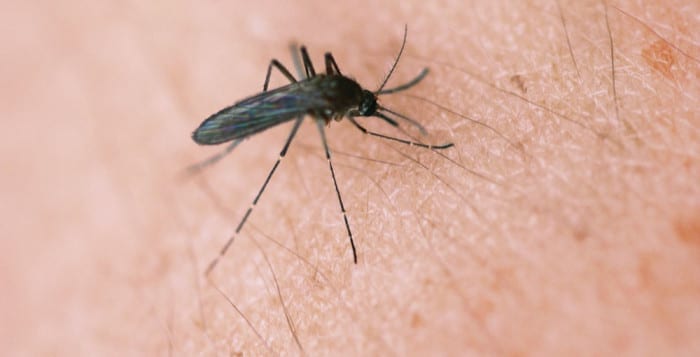Nineteen more mosquitoes and two birds have tested positive for West Nile virus in various neighborhoods across Suffolk County, Health Commissioner Dr. James L. Tomarken announced on Monday.
The mosquito samples, collected from Aug. 17 to 19, hailed from: Lindenhurst, West Babylon, Northport, Huntington Station, South Huntington, Greenlawn, Commack, Nesconset, Smithtown, Saltaire on Fire Island, Port Jefferson, Farmingville, Holtsville, Yaphand, Southold and East Hampton. Two blue jays collected on Aug. 14 from Stony Brook and a blue jay collected on Aug. 24 and Aug. 25 from Smithtown, also tested positive for the virus.
“The confirmation of West Nile virus in mosquito samples or birds indicates the presence of West Nile virus in the area,” Tomarken said. “While there is no cause for alarm, we urge residents to cooperate with us in our efforts to reduce the exposure to the virus, which can be debilitating to humans.”
To date, this year Suffolk’s total West Nile count comes to 99 mosquitoes and seven birds. No humans or horses have tested positive for the virus in Suffolk this year.
First detected in birds and mosquito samples in Suffolk in 1999, and again each year thereafter, the virus is transmitted to humans by the bite of an infected mosquito.
While Dr. Tomarken said there’s no cause for alarm, the county is urging residents to reduce exposure to the virus, which “can be debilitating to humans.”
“The breed of mosquito known as culex pipiens/restuans lay their eggs in fresh water-filled containers, so dumping rainwater that collects in containers around your house is important,” he said.
Residents should try to eliminate stagnant water where mosquitoes breed, in order to reduce the mosquito population around homes. That includes: disposing of tin cans, plastic containers, ceramic pots or similar water-holding containers; removing discarded tires; cleaning clogged gutters; turning over plastic wading pools and wheelbarrows when they’re not being used; changing the water in bird baths; and draining water from pool covers
Most people infected with West Nile will experience mild or no symptoms, but some can develop severe symptoms, including high fever, headache, neck stiffness, stupor, disorientation, coma, tremors, convulsions, muscle weakness, vision loss, numbness and paralysis. The symptoms may last several weeks and neurological effects may be permanent. Individuals, especially those 50 years of age or older or those with compromised immune systems, who are most at risk, are urged to take precautions to avoid being bitten by mosquitoes.
Residents are advised to avoid mosquito bites by: minimizing outdoor activities between dusk and dawn; wearing shoes and socks, long pants and long-sleeved shirts when outdoors for long periods of time or when mosquitoes are more active; using mosquito repellent when outdoors, following label directions carefully; and making sure all windows and doors have screens and that all screens are in good condition.
To report dead birds, call the West Nile virus hot line in Suffolk County at 631-787-2200 from 9 a.m. to 4 p.m., Monday through Friday. Residents are encouraged to take a photograph of any bird in question.
To report mosquito problems or stagnant pools of water, call the Department of Public Works’ Vector Control Division at 631-852-4270.
For medical questions related to West Nile virus, call 631-854-0333.





